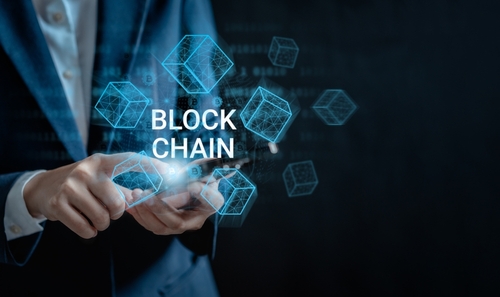Blockchain is one of the most talked-about technologies. From its association with cryptocurrencies like Bitcoin to applications across industries, it has become synonymous with innovation and digital transformation. But what is blockchain, and why is it so important? If you’re from the UAE and want to demystify this cutting-edge technology, you’ve come to the right place.
This beginner-friendly guide explains blockchain in simple terms, examines how it works, and highlights its potential uses. By the end of this blog, you’ll understand why blockchain is making waves globally and how it could impact your life or business.
Understanding Blockchain What It Is and Why It Matters
At its core, blockchain is a digital ledger or record-keeping system. Imagine a book that records transactions in a way that makes each entry secure, unalterable, and transparent. Simply put, blockchain keeps data safe while ensuring everyone can access and verify its authenticity.
Blockchain eliminates the need for middlemen like banks in financial transactions. Instead, every transaction is verified by a network of computers and recorded on a digital block. Each block is then linked to the one before it, forming a chain. Hence the name “blockchain.”
Here are a few key characteristics of blockchain:
- Decentralised No single authority controls the information. Instead, it is distributed across multiple computers.
- Transparent Every user has visibility of all transactions.
- Immutable Once information is added, it cannot be edited or erased.
But blockchain isn’t limited to financial uses. Its secure, transparent, and decentralised nature makes it versatile for numerous other applications.
How Blockchain Works Simplified for Beginners
To understand blockchain technology, it’s helpful to break it into simplified steps:
- A Transaction is Initiated Imagine someone in the UAE sending money to their friend in another country. The process begins with this transaction.
- The Transaction is Verified A network of computers, known as nodes, works together to verify the transaction. This can include verifying the sender has enough money and confirming the recipient’s details.
- The Verified Transaction Becomes a Block Once verified, the details of the transaction are added into a digital “block.” This includes vital information like the amount and both parties’ addresses.
- The Block is Added to the Chain Once formed, the block is added to the blockchain, securely connected to all previous blocks.
- The Data is Immutable The blockchain is updated across the network of nodes, making the data unchangeable and publicly accessible to anyone in the system.
With blockchain, trust is built through transparency and a decentralised process. These features remove the need for intermediaries, reducing costs and improving efficiency.
Applications of Blockchain Beyond Cryptocurrencies
While blockchain is best known for cryptocurrencies like Bitcoin, its potential goes far beyond digital currency. Here’s how this technology is being used in various fields:
Financial Services
Blockchain is revolutionising banking and finance. It allows instant cross-border payments with lower fees compared to traditional systems. For businesses and residents in the UAE, blockchain makes global transactions faster and more affordable.
Supply Chain Management
Imagine tracking a product’s entire lifecycle, from production to delivery. Blockchain ensures every step is transparent, helping detect counterfeit goods and boost quality assurance.
Healthcare
Blockchain enhances data security for electronic medical records. It ensures patients’ data is tamper-proof and accessible only to authorised parties, improving privacy and trust.
Real Estate
Smart contracts on blockchain remove the need for intermediaries in buying, selling, and leasing property. This streamlines processes, increases security, and reduces costs for real estate transactions.
Voting
Blockchain strengthens the integrity of elections by preventing fraudulent voting and ensuring transparency in counting votes. Several pilot projects globally are testing this application.
Digital Identity
With blockchain, users can control their digital identity securely. This can be particularly valuable in the UAE’s push for smarter, tech-enabled services.
Entertainment
Whether verifying music copyright or creating unique digital art as NFTs, blockchain empowers creators to protect and monetise their work.
Blockchain is proving to be a transformative technology, creating value across multiple industries.
Common Misconceptions About Blockchain
Isn’t Blockchain Just Cryptocurrency?
No, blockchain is the underlying technology that powers cryptocurrencies like Bitcoin, but its applications are far broader.
Is Blockchain for Big Corporations Only?
Not at all. While enterprises worldwide are adopting blockchain, small and medium-sized businesses in the UAE are also exploring its benefits.
Is Blockchain 100% Secure?
While blockchain is highly secure, like all systems, it’s not immune to vulnerabilities. Proper implementation is key.
Does Blockchain Replace Banks?
Not entirely. Blockchain offers alternatives, but banks are also adopting it to modernise their operations.
The Future of Blockchain in the UAE
The UAE has emerged as a global leader in blockchain adoption, driven by its forward-thinking government initiatives. The Dubai Blockchain Strategy aims to make Dubai the world’s first blockchain-powered city, with over 50% of government transactions conducted on blockchain. From smart city projects to digital identities, blockchain is seamlessly integrating into daily life.
For businesses in the UAE, understanding and adopting blockchain early can offer a competitive advantage. Whether it’s reducing operational costs or enhancing customer trust, the technology provides immense potential.
Steps to Explore Blockchain for Business
If you’re in the UAE and wondering how to leverage blockchain for your business, here are a few simple steps to get started:
- Educate Your Team Build foundational knowledge to understand blockchain use cases.
- Identify Relevant Use Cases Analyse areas where blockchain could solve existing challenges in cost, efficiency, or transparency.
- Consult Experts Collaborate with blockchain professionals to identify the best technology stacks and designs for your needs.
- Experiment with Pilot Projects Start small by testing blockchain’s feasibility in less critical operations.
- Collaborate with Government Initiatives Tap into UAE’s blockchain strategies to align with larger goals and resources.
